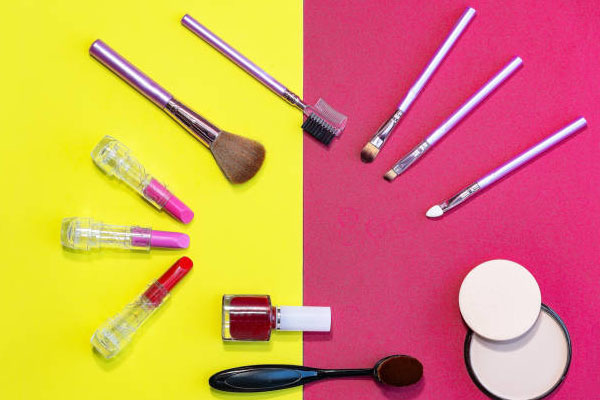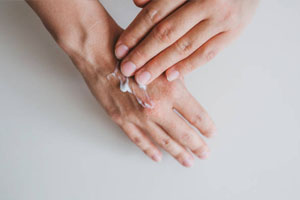Explore the truth behind beauty care myths and misconceptions Learn how to make informed choices for your beauty and skincare routine Uncover the facts behind common beauty myths
Beauty care is a topic surrounded by a plethora of myths and misconceptions that can sometimes lead us astray in our routines and choices. In this article, we aim to debunk some of the most prevalent beauty myths and provide you with the facts you need for informed and effective beauty care. Let's unravel the truth behind these common misconceptions and discover how to make the best choices for your beauty and skincare needs.

Debunking Skincare Myths
1. Myth: You Should Exfoliate Your Skin Every Day
One common skincare myth is the belief that daily exfoliation is essential for achieving clear and radiant skin. In reality, exfoliating your skin every day can do more harm than good. Here's why:
The Truth About Daily Exfoliation
While exfoliation is a valuable part of any skincare routine, it's important to do it in moderation. Exfoliating your skin every day can lead to several issues:
- Over-Exfoliation: Excessive exfoliation can strip away the skin's natural oils and disrupt its protective barrier. This can make your skin more vulnerable to irritations, redness, and dryness.
- Increased Sensitivity: Daily exfoliation can make your skin more sensitive to environmental factors, such as UV radiation. This heightened sensitivity can lead to sun damage and premature aging.
- Unintended Consequences: The pursuit of daily exfoliation may lead to using harsh scrubs or chemical exfoliants too frequently, which can exacerbate skin problems rather than solve them.
Proper Exfoliation Practices
If you want to maintain healthy and glowing skin, it's crucial to exfoliate properly:
- Frequency: Most dermatologists recommend exfoliating two to three times a week, depending on your skin type. If you have sensitive skin, less frequent exfoliation may be ideal.
- Exfoliant Choice: Select a gentle exfoliant that suits your skin, such as a mild chemical exfoliant like glycolic acid or lactic acid. Avoid harsh physical scrubs, especially on your face.
- Protection: Always follow exfoliation with a broad-spectrum sunscreen to shield your skin from UV rays. This is essential to protect the newer skin layers exposed through exfoliation.
So, the myth of daily exfoliation is just that – a myth. To achieve the best results for your skin, follow a balanced exfoliation routine that suits your skin type and concerns.
2. Myth: Natural Ingredients Are Always Safe for Your Skin
Another prevailing misconception in skincare is the belief that all-natural ingredients are inherently safe for your skin. While natural ingredients have their merits, it's essential to understand the nuances of their safety and effectiveness:
The Reality of Natural Ingredients
Natural ingredients can indeed provide various benefits for the skin, but their safety and compatibility with your skin depend on several factors:
- Allergenic Reactions: Some natural ingredients can cause allergies or skin sensitivities, just like synthetic ones. For instance, common allergens include essential oils like lavender or citrus, and even natural sources like nuts.
- Potential Irritants: Natural ingredients like citrus or mint can be irritating, particularly for sensitive skin. Using them in their concentrated forms can lead to redness or discomfort.
- Stability and Preservation: Natural ingredients can deteriorate over time, making them less effective or even potentially harmful. Proper formulation and preservation are crucial for maintaining their safety and efficacy.
Guidelines for Safe Use of Natural Ingredients
If you want to incorporate natural ingredients into your skincare routine, consider the following guidelines:
- Patch Testing: Before using a new natural ingredient, conduct a patch test to check for any adverse reactions. Apply a small amount to a discreet area of your skin and monitor it for a few days.
- Proper Dilution: When using essential oils or potent natural extracts, always dilute them with carrier oils or other suitable mediums to reduce the risk of irritation.
- Check Product Labels: Read product labels carefully to ensure that natural ingredients are used in safe and controlled concentrations, and that the product is adequately preserved.
It's a common misconception that all-natural ingredients are automatically safe for your skin. In reality, the safety of natural skincare products depends on a combination of factors, including individual sensitivities and proper formulation. Being informed and cautious is key to enjoying the benefits of natural ingredients while minimizing potential risks.
3. Myth: You Don't Need Sunscreen on Cloudy Days
A persistent misconception regarding sun protection is the belief that sunscreen is unnecessary on cloudy or overcast days. However, this myth can lead to harmful sun exposure and skin damage. Here's why it's crucial to debunk this idea:
The Reality of UV Radiation on Cloudy Days
Even when the sun is not directly visible, harmful UV radiation is still present on cloudy days. Here are key facts to consider:
- UVA and UVB Rays: Clouds may block a portion of UVB rays (the ones responsible for sunburn), but UVA rays, which contribute to premature aging and skin damage, can penetrate cloud cover. This means your skin is still exposed to harmful radiation.
- Cumulative Effects: Sun damage accumulates over time. Even short, repeated exposures to UV radiation on cloudy days can lead to skin aging, pigmentation issues, and an increased risk of skin cancer.
- Inconsistent Cloud Cover: Clouds can be inconsistent, with gaps that allow direct sunlight to reach your skin. This makes it challenging to predict when you're safe from UV exposure.
Why Daily Sunscreen Is Essential
Here's why wearing sunscreen daily, regardless of the weather, is vital for maintaining healthy and protected skin:
- Broad-Spectrum Protection: Sunscreen provides broad-spectrum protection, shielding your skin from both UVA and UVB rays, minimizing the risk of sunburn, premature aging, and skin cancer.
- Consistent Habits: Making sunscreen a daily habit ensures you're protected whenever you step outside, making it easier to safeguard your skin from the sun's harmful effects.
- Long-Term Benefits: The consistent use of sunscreen helps maintain youthful-looking skin, prevent pigmentation, and reduce the risk of skin cancer in the long run.
In conclusion, the idea that sunscreen is unnecessary on cloudy days is a dangerous myth. To protect your skin effectively, make daily sunscreen application an integral part of your skincare routine, regardless of the weather.
4. Myth: You Should Pop Pimples to Get Rid of Them
One of the most enduring and harmful skincare myths is the belief that popping pimples is an effective way to get rid of them. However, this misconception can lead to more skin issues and long-term scarring. Here's why you should avoid this common practice:
The Dangers of Pimple Popping
Popping pimples can cause several issues that may worsen your skin condition:
- Infection Risk: Pimple popping can introduce bacteria from your fingers into the pimple, increasing the risk of infection. This can lead to a more extensive, painful, and harder-to-treat pimple.
- Scarring: Popping pimples often damages the surrounding skin, leading to scarring and hyperpigmentation. These scars can persist long after the pimple itself has healed.
- Spread of Acne: Popping a pimple can force some of the pus and debris deeper into your skin, causing additional breakouts and making the original pimple last longer.
Safe and Effective Pimple Care
If you want to address pimples effectively without harming your skin, follow these steps:
- Cleanse Gently: Use a gentle cleanser to keep your skin clean, but avoid harsh scrubbing, which can exacerbate acne.
- Topical Treatments: Apply over-the-counter acne treatments with benzoyl peroxide or salicylic acid to help reduce pimples. Consult a dermatologist for prescription options if needed.
- Spot Treat with Caution: If you must pop a pimple, do so carefully and cleanly with a sterilized needle or tool. Apply an antibiotic ointment afterward to minimize infection risk.
In conclusion, the myth that you should pop pimples to get rid of them is a damaging misconception. Pimple popping can lead to infections, scarring, and worsened acne. Instead, opt for safer and more effective methods of pimple care to maintain healthy and clear skin.
Separating Hair Care Facts from Fiction
1. Myth: Trimming Your Hair Makes It Grow Faster
One of the most enduring hair care myths is the belief that trimming your hair frequently will make it grow faster. In reality, hair growth occurs at the scalp, and cutting the ends does not affect the rate of growth. Here's the truth behind this common misconception:
The Reality of Hair Growth
To understand why trimming doesn't boost hair growth, consider the following factors:
- Biological Process: Hair growth begins at the hair follicles in the scalp. These follicles determine the speed and thickness of hair growth, which is primarily influenced by genetics and hormones.
- End Splitting: Trimming hair can help eliminate split ends, which can make hair appear healthier and prevent breakage. While this gives the illusion of faster growth, it's not a reflection of actual growth rate.
- Regular Maintenance: Routine trims are essential for maintaining the overall health and appearance of your hair, as they prevent damage and promote even growth. However, they don't accelerate the rate at which your hair grows from the scalp.
Proper Hair Care Practices
While trimming doesn't increase hair growth, there are effective ways to support healthy hair:
- Scalp Care: Focus on a clean and healthy scalp by using a mild shampoo and conditioner. Massaging the scalp can improve circulation and support hair growth.
- Nutrient-Rich Diet: Eating a balanced diet rich in vitamins, minerals, and proteins can contribute to the overall health of your hair, making it look its best.
- Minimize Heat and Chemical Damage: Avoid excessive heat styling and harsh chemical treatments, as they can damage the hair and slow its growth.
In conclusion, the myth that trimming your hair makes it grow faster is not accurate. Hair growth primarily depends on factors like genetics and hormonal influences at the hair follicles. While regular trims are beneficial for maintaining hair health, they do not impact the speed of hair growth.
2. Myth: You Should Wash Your Hair Daily for a Healthy Scalp
A common misconception in hair care is the belief that washing your hair daily is necessary for a healthy scalp. However, this practice can have adverse effects on your hair and scalp. Here's why the daily washing myth should be dispelled:
The Reality of Hair Washing Frequency
Understanding the needs of your hair and scalp can help you avoid the pitfalls of daily washing:
- Natural Oils: Your scalp produces natural oils (sebum) that nourish your hair and provide a protective barrier. Washing your hair daily can strip away these essential oils, leading to dryness and potential irritation.
- Overproduction of Oil: Paradoxically, frequent washing can trigger your scalp to produce even more oil to compensate for what's lost. This can result in greasier hair and a cycle of over-washing.
- Damage Risk: Daily washing can weaken the hair shaft and make it more prone to breakage. This can negatively impact the overall health and appearance of your hair.
Optimal Hair Washing Practices
To maintain a healthy scalp and hair, follow these guidelines for hair washing:
- Frequency: Most people can benefit from washing their hair two to three times a week. However, the ideal frequency varies depending on your hair type and lifestyle. Experiment to find what works best for you.
- Use a Gentle Shampoo: Choose a mild, sulfate-free shampoo that suits your hair type. Avoid shampoos with harsh detergents that can strip away natural oils.
- Condition Properly: Use a conditioner to keep your hair moisturized, focusing on the ends. Avoid applying it to your scalp to prevent excessive oiliness.
In conclusion, daily hair washing is not a necessary practice for a healthy scalp. Understanding your hair's needs and adjusting your washing frequency can lead to a healthier, more balanced scalp and better hair condition.
3. Myth: Heat Styling Doesn't Damage Your Hair If You Use Heat Protectants
Many people believe that using heat protectants while styling their hair with heat tools renders their hair damage-free. While heat protectants are valuable, they don't provide complete immunity from damage. Here's the truth about this common misconception:
Understanding the Impact of Heat Styling
Heat styling can have several consequences, even when heat protectants are used:
- Structural Damage: Heat can weaken the structural proteins in your hair, making it more susceptible to breakage, frizz, and dullness over time.
- Loss of Moisture: High temperatures can strip your hair of moisture, making it dry and brittle. This can lead to split ends and further damage.
- Color Fading: Heat styling can cause color-treated hair to fade more quickly, diminishing the vibrancy of your hair color.
The Role of Heat Protectants
Heat protectants are designed to minimize heat damage, but they aren't foolproof. Here's how they work and their limitations:
- Barrier Function: Heat protectants create a barrier on your hair's surface, reducing direct heat exposure. They also help to maintain moisture levels, minimizing the impact of heat.
- Effectiveness: Heat protectants can significantly reduce damage, but they cannot entirely eliminate it. The level of protection may vary depending on the product's formulation and application.
- Preventive Measures: While using heat protectants is essential, it's equally important to avoid excessive heat, use the right temperature settings on your styling tools, and limit heat styling to a reasonable frequency.
In conclusion, the myth that heat styling doesn't damage your hair if you use heat protectants is not accurate. While heat protectants provide valuable protection, they do not eliminate the potential for damage. It's essential to combine their use with other preventive measures to keep your hair healthy and beautiful.
Unveiling Makeup Misconceptions
1. Myth: Wearing Makeup Every Day Leads to Premature Aging
One prevailing beauty myth suggests that wearing makeup daily accelerates the aging process. However, this belief overlooks the nuances of makeup application and the impact of cosmetics on your skin. Here's what you should know:
The Reality of Makeup and Aging
Understanding the relationship between makeup and premature aging involves the following key considerations:
- Quality of Makeup: The type and quality of makeup products you use can significantly influence their impact on your skin. High-quality, non-comedogenic, and mineral-based makeup is less likely to clog pores or harm your skin.
- Makeup Removal: How thoroughly you remove makeup is crucial. Leaving makeup on overnight can contribute to skin issues, while diligent makeup removal and skincare can mitigate potential damage.
- Ingredients Matter: Some makeup products contain ingredients that can be harmful over time. Harsh chemicals, excessive fragrances, and drying agents can lead to skin irritation and accelerated aging.
Proper Makeup Habits
To enjoy makeup while maintaining youthful skin, follow these practices:
- High-Quality Products: Invest in makeup products from reputable brands known for their skin-friendly formulations. Look for terms like "non-comedogenic" and "hypoallergenic."
- Remove Makeup Carefully: Make sure to remove makeup thoroughly at the end of the day, using gentle but effective cleansing methods. Avoid scrubbing your skin vigorously.
- Skin Care Routine: Incorporate a skincare routine that includes moisturizing and applying sunscreen daily, regardless of makeup use. These practices help protect and nourish your skin.
In conclusion, the myth that wearing makeup every day leads to premature aging is a generalization. The effects of makeup on your skin depend on factors like product quality, makeup removal, and the ingredients in your cosmetics. By making informed choices and maintaining a healthy skincare routine, you can enjoy makeup without compromising your skin's vitality.
2. Myth: Expensive Makeup Products Are Always Better
There's a common beauty myth that suggests expensive makeup products are superior in quality and performance compared to their more affordable counterparts. While luxury makeup brands certainly offer premium options, it's not always true that cost equates to quality. Here's why you should reconsider this myth:
The Reality of Makeup Product Quality
Understanding the quality and performance of makeup products requires considering various factors:
- Brand Reputation: A brand's reputation doesn't solely rely on the price of its products. Some affordable brands have gained recognition for their exceptional quality and effectiveness.
- Ingredients: The ingredients in makeup products determine their performance and how they interact with your skin. Some budget-friendly brands use high-quality ingredients that can rival more expensive options.
- Personal Preference: Makeup is highly personal. What works well for one person may not suit another. Factors like skin type, color preferences, and specific makeup needs play a significant role in product choice.
Choosing Makeup Products Wisely
To make informed decisions about makeup products without being swayed solely by price, follow these guidelines:
- Product Research: Look for reviews and recommendations from trusted sources, including makeup artists and beauty experts. Consider the ingredients and performance reviews rather than price alone.
- Test Products: Many makeup retailers offer samples or testers. Experiment with different products to find what suits you best before committing to a full-sized product.
- Consider Your Budget: Determine how much you're willing to spend on makeup and seek the best options within your budget. Affordable products can deliver fantastic results when chosen thoughtfully.
In conclusion, the myth that expensive makeup products are always better is a generalization that doesn't account for individual preferences and product quality. While luxury brands offer exceptional options, there are affordable makeup products that can perform just as well, if not better, for your specific needs.
3. Myth: Makeup Causes Acne Breakouts
One prevalent beauty myth suggests that wearing makeup leads to acne breakouts and skin imperfections. While it's true that certain makeup products can contribute to skin issues, the myth oversimplifies the relationship between makeup and acne. Here's the reality behind this misconception:
The Reality of Makeup and Acne
Understanding how makeup can impact acne-prone skin requires considering several factors:
- Product Selection: Not all makeup products are created equal. Some cosmetics contain ingredients that are comedogenic, meaning they can clog pores and lead to acne. However, many makeup brands now offer non-comedogenic options that are less likely to cause breakouts.
- Makeup Removal: Failing to remove makeup thoroughly at the end of the day can lead to clogged pores and breakouts. Proper makeup removal is essential for healthy skin, especially if you wear makeup regularly.
- Individual Skin Sensitivity: Each person's skin reacts differently to makeup products. What may cause breakouts in one individual might not affect another. Skin type, allergies, and sensitivities play a significant role in how makeup impacts the skin.
Healthy Makeup Habits
To enjoy makeup without exacerbating acne breakouts, follow these practices:
- Choose Non-Comedogenic Products: Opt for makeup labeled as non-comedogenic, as these products are less likely to clog pores and cause breakouts.
- Thorough Makeup Removal: Ensure you remove makeup completely every night. Consider using a gentle, makeup-specific cleanser or micellar water to eliminate all traces of makeup.
- Hydrate and Protect: Use a moisturizer that suits your skin type and apply sunscreen daily, even when wearing makeup. These steps help maintain skin health.
In conclusion, the myth that makeup causes acne breakouts oversimplifies the relationship between cosmetics and skin issues. The potential for breakouts depends on product selection, makeup removal practices, and individual skin sensitivity. By making informed choices and following proper skincare routines, you can enjoy makeup without worsening acne.
FAQs about Common Beauty Care Myths and Misconceptions
Q1: Is it true that wearing makeup every day leads to premature aging?
A1: The belief that daily makeup use accelerates aging is a misconception. The impact of makeup on aging depends on factors such as product quality, makeup removal, and ingredient choices. Using high-quality makeup, removing it thoroughly, and maintaining a skincare routine can help preserve youthful skin.
Q2: Are expensive makeup products always better than affordable ones?
A2: Not necessarily. The quality of makeup products varies by brand, ingredients, and individual preferences. While luxury brands offer premium options, there are affordable makeup products that perform excellently. It's essential to consider product quality, personal needs, and reviews rather than focusing solely on price.
Q3: Does wearing makeup cause acne breakouts?
A3: Makeup can contribute to acne breakouts if not used correctly. Factors like product selection, makeup removal, and individual skin sensitivity play a role. Opt for non-comedogenic products, remove makeup thoroughly, and maintain a skincare routine to enjoy makeup without worsening acne.
Q4: Can using heat protectants while heat styling completely prevent hair damage?
A4: Heat protectants offer valuable protection against heat styling, but they do not eliminate the potential for damage entirely. Heat styling can still weaken hair, strip it of moisture, and cause color fading. Using heat protectants in combination with responsible heat styling practices is essential for maintaining healthy hair.
Q5: Is it advisable to wash your hair daily for a healthy scalp?
A5: Daily hair washing is not necessary for a healthy scalp. The ideal frequency depends on your hair type and lifestyle. Overwashing can strip your scalp of natural oils and lead to overproduction of oil. Using a gentle shampoo and conditioner and avoiding excessive washing are key to a healthy scalp.








